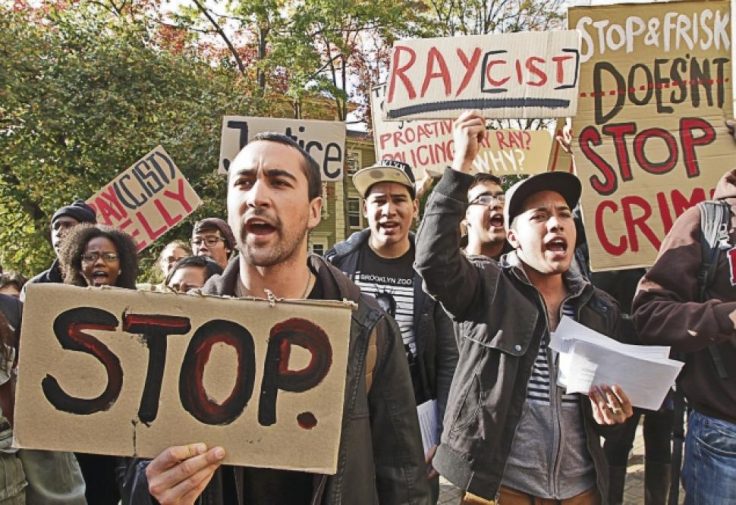It is said that college campuses are a microcosm of society. Ithaca College professor Stephen Sweet said as much in his 2002 book, College and Society: An Introduction to the Sociological Imagination. So did Dr. Daniele Struppa, president of Chapman University, in a March 2021 statement denouncing racism and avowing that Chapman students, faculty, and staff are "devoted to the idea of an equitable society."
"A university is a microcosm of our larger society that reflects beliefs, ideologies, experiences, and backgrounds," he said, emphasizing that "we are not immune to the ills of our society."
Sigal R. Ben-Porath, a University of Pennsylvania professor of education, philosophy, and political science advances a similar claim in her new book, Cancel Wars: How Universities Can Foster Free Speech, Promote Inclusion, and Renew Democracy, arguing that the attempts of progressive college students to censor conservative views reflects a wider struggle in the United States to determine what can be said about gender identity, inequality, and, above all, race.
Democracy is under threat from political polarization, populism, and the propagators of disinformation and hate speech, she writes, and only a determined effort to create a "shared epistemology" can bring America back from the brink of authoritarianism and decline.
Professor Ben-Porath makes several valid points. Hyper-polarization in politics erodes social trust, discouraging cooperation on issues that Americans should address not as rival family clans locked in a blood feud but as one people guided by a common purpose. Moreover, a sense among populists, left and right wing, that cultural and economic elites enjoy moral double standards, unearned privilege, and inordinate influence in determining the direction of the country is alienating average people from leaders and institutions whose honesty and integrity should be taken for granted.
For all this, Cancel Wars is a tribal book lacking in objectivity and awareness that when it comes to the issue of censorship, it is wider American society that has contracted "the ills" of the campus. In effect, higher education sneezed and the entire American household got sick.
Early cases of cancel culture in higher education can be found in the historical record going as far back as the 1970s. But in the 2010s, they became more common, with a high profile incident occurring at Brown University in 2013. New York City Police Department commissioner Ray Kelly, who at the time enjoyed a higher approval rating than anyone ever to hold his office, was booed off stage before he could begin a lecture at the Taubman Center for Public Policy and American Institutions on "Proactive Policing in America’s Biggest City." The student protesters who led the demonstration accused Kelly of being a racist for supporting "stop-and-frisk," the practice of searching (mostly black) male civilians in high crime neighborhoods for illegal drugs and firearms.
"You are the terrorist, terrorizing our people!" a student bellowed at Kelly amid a din of boos ricocheting through the room.
The disruption prompted the university to cancel the event and university president Christina H. Paxson to issue a statement describing the protest as "indefensible and an affront both to civil democratic society and to the university’s core values of dialogue and the free exchange of views." Nevertheless, Kelly was not invited back.
Perhaps one of the most known incidents of campus censorship happened the following year when Charles Murray, author of The Bell Curve and Coming Apart, was prevented from speaking before a live audience at Middlebury College when a mob of students chased him off the stage, forcing him to finish the event on a live stream broadcast from an undisclosed location. Like Kelly, he was accused of being a racist but was honored with the particular distinction of "white nationalist."
"We see a growing suspicion of the democratic relevance of free speech and a sense among some, including young people in particular and especially those on the progressive side of the map, that fighting to protect open expression ends up serving reactionary political goals," Ben-Porath writes, explaining the views of students who participated in similar demonstrations and whom conservatives later described as "snowflakes."
The election of Donald Trump as president in 2016 energized the cancel culture movement, and its ideas spread from the campus to Main Street and Hollywood as college graduates armed with the gospel of censorship reshaped the newsrooms, offices, and schools that hired them. Before long, athletes, reliably left-wing celebrities, and potential Supreme Court judges were named as transgressors of the new faith.
Those who reject science and claims of systemic racism are the problem, Ben-Porath continues. Like flat-earthers denying that our planet is round, so many allow "willful ignorance," i.e., "motivated reasoning that takes an active stance against available contradictory information," to build around their minds a cognitive fence that keeps enlightened, progressive views out. Whites, she adds, "maintain double ignorance."
Ben-Porath is most willfully ignorant when discussing conservative opposition to the expertise of public health officials during the COVID-19 pandemic. She never, it seems, considered that anything they said about the virus, after 1,300 of their colleagues issued a letter declaring that the George Floyd protests were consistent with efforts to fight COVID-19, would be evaluated with suspicion or entirely distrusted.
Cancel Wars does at times offer insightful analysis, but it is a work that never overcomes the ideological objectives of its author, which from page one undermine its thesis that academia should take a leading role in renewing democracy. Someone else from within the higher education establishment will have to step up to exceed where Ben-Porath fails. Given how intellectually conformist the campus has become, it could be a long time before that happens.
Cancel Wars: How Universities Can Foster Free Speech, Promote Inclusion, and Renew Democracy
by Sigal R. Ben-Porath
University of Chicago Press, 206 pp., $20
Dion J. Pierre is the campus correspondent for the Algemeiner. He was previously a research associate at the National Association of Scholars, where he wrote "Neo-Segregation at Yale."
